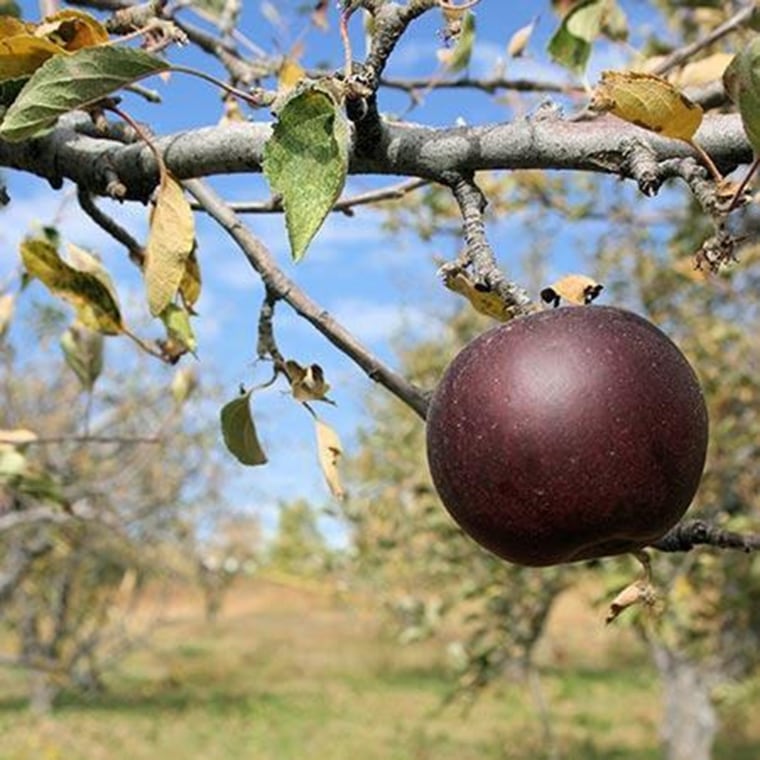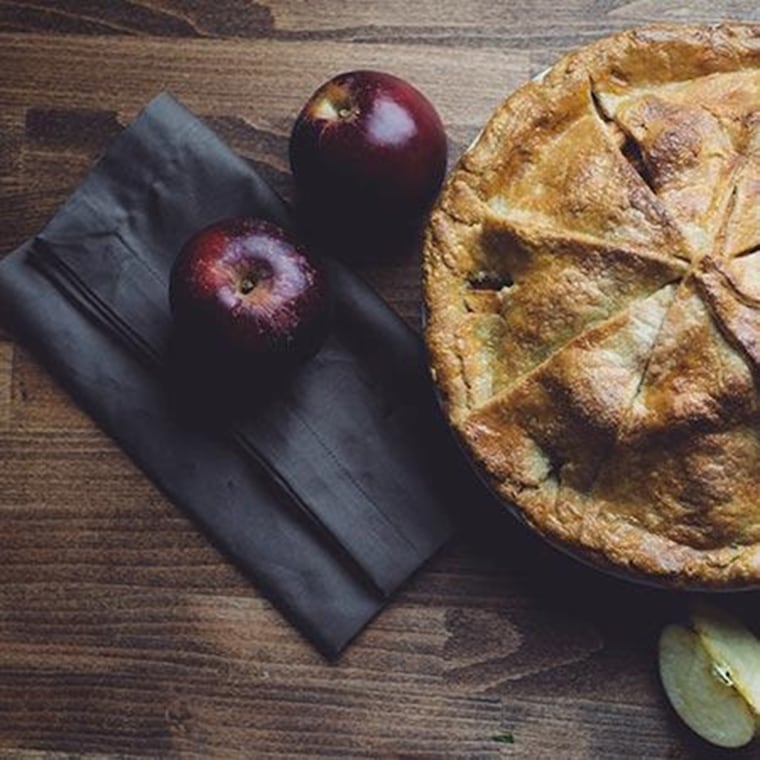This extremely rare apple looks like something out of a fairy tale
Many grocery stores carry quite an array of apples these days — from bright green Granny Smith to delightfully speckled Honeycrisp and Gala apples.
But unless you live in a very, very remote part of Tibet, chances are you probably haven’t seen a black apple … until now.
Just learned of this Black Diamond Apple grown in Tibet. Doesn’t it look like it’s just oozing folklore? pic.twitter.com/Y2qGxIYsZo
— Christina Persaud (@EerieChristine) March 27, 2019
Black Diamond apples are a rare variety from the family of Hua Niu apples (also known as the Chinese Red Delicious). The name is a little misleading because they aren’t exactly black, but rather a dark hue of purple.
The unique apples owe their color to their native geography in Nyingchi, a small city in the mountains of Tibet, where they receive a lot of ultraviolet light during the day but the temperature fluctuates dramatically at night, causing the skin to develop a deep, dark color. The flesh inside is white and bright like any other apple.
However, if you won’t be near China anytime soon, the U.S. has its own darker breed of apple: the Arkansas Black. While not super dark, these apples are deeper in color than a standard Red Delicious and would make a fun stand-in at any Snow White-themed party.

FastGrowingTrees.com
So why don’t we see the uniquely colored Arkansas apples stacked among the Galas and Fujis of the world?
“The Arkansas Black apple is one that you have to store in order for it to taste good,” Norm Schultz, a farmer at Linvilla Orchards in Media, Pennsylvania, told TODAY Food. “It takes a long time to develop their flavors.”
Typically, explained Schultz, Arkansas Black apples are picked in the fall (when other apples are harvested) but they’re quite tart right off the tree. After being stored for several months, they develop a sweeter taste and their hard flesh softens up making them much more enjoyable.

FastGrowingTrees.com
It’s a significant time investment for any farmer that doesn’t always pay off — whether you’re in the U.S. or in a remote Tibetan mountain. About 70 percent of the annual Black Diamond crop doesn’t make it to market.
“I do know that many apple farmers don’t like growing these unusual hybrids because it takes five to eight years to get fruit and they are unproven in the [international commercial] market,” Mark Veeder, a botanist, farmer and founder of Farmacy Beauty said.
But could that darker skin be imbued with better nutrients like dark, leafy green veggies?
Although they offer a nice, sweet crunch, Black Diamond apples likely don’t have a higher nutritional value than most commercial apple varieties, Bonnie Taub-Dix, RDN, creator of BetterThanDieting.com, author of “Read It Before You Eat It – Taking You from Label to Table,” told TODAY.
“An average apple provides 4 grams of fiber, around 100 calories and they contain a flavonoid called epicatechin, which has been shown to reduce blood pressure and support heart health,” said the nutritionist. “Apples have also been shown to be anti-inflammatory and they are filling and satisfying.”
While these beautiful apples may not be more nutritionally beneficial than their brighter counterparts, they are definitely more expensive. Black Diamond apples are produced within a very limited window and are usually available for just two months each year. In China, they are only sold in high-end supermarkets (usually in gift boxes). And while an individual apple starts around $7, some can be as pricey as $20 each!






